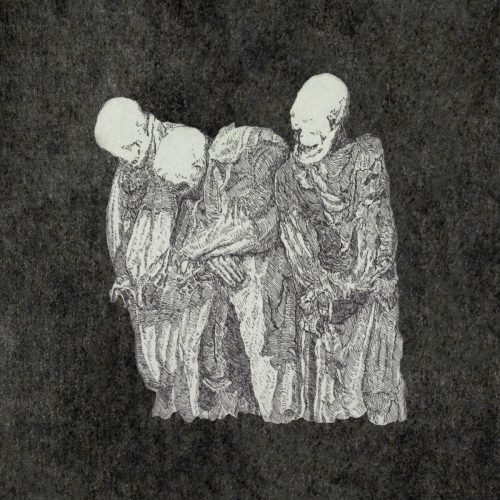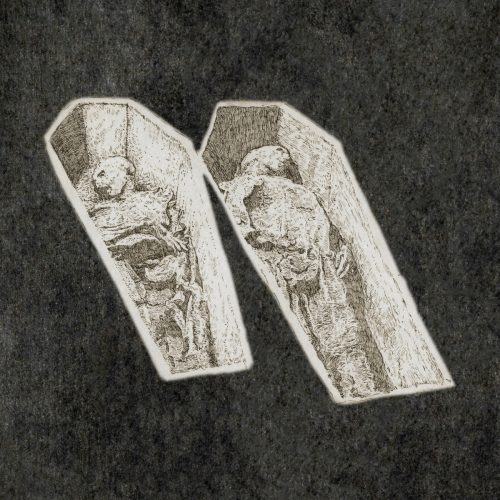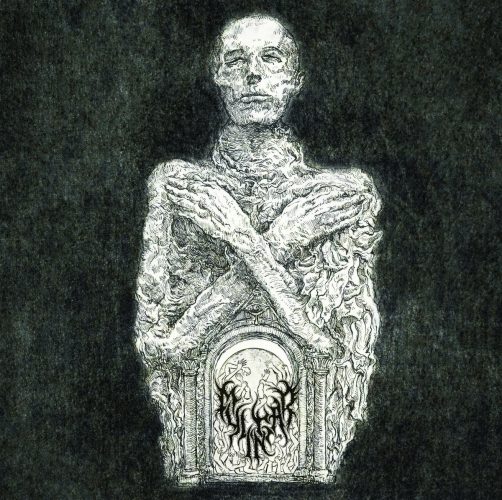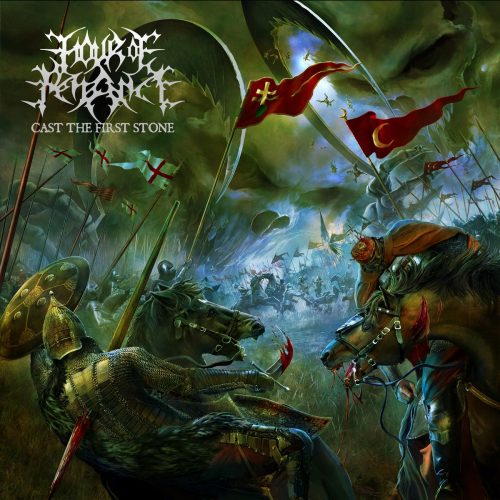In preparing to introduce the premiere of Mylingar’s new album Döda Själar, I did two things I almost never do. I rarely listen to a band’s previous releases in reviewing a current one, and I never read other reviews of something I’ve chosen to write about. In this case, however, I re-listened to Mylingar’s first two records, and I read some other reviews (after completing my own). I listened again to 2016’s Döda vägar EP and 2018’s Döda drömmar (which was the band’s first full-length), in part because Döda Själar is the completion of a trilogy that began with those two, and putting it in that context seemed important, and in part because I was curious about how this mysterious Swedish band might have changed their music over time.
As for reading other reviews, I was also curious — about how other people were processing such an annihilating strike. I saw such words and phrases as these: “entering the mouth of madness”; “filthy and nauseating”; “terrifying music for terrified people”; “a record that preys on all that makes humans uncomfortable and tormented”; “routinely twisted”; “heavy and demented chaos”; “some of the most extreme and claustrophobic music released in recent years”; “visceral and unhinged”. Even the advance publicity for the album refers to it as “[a] tempest of whirlwind blackened death metal barbarity and animalistic filth, unrelenting in its intent to rend flesh from bone and inflict torment”.
Resort to such words and phrases is inevitable. You’ll see similar verbiage in what I’ve written. Yet the infliction of different kinds of extreme discomfort, while an unmistakable characteristic of the music, is but one objective of Döda Själar, as I hear it. And the mind-wrecking and bowel-churning qualities of the music (also unmistakable) don’t manage to completely overwhelm the presence of other devilishly devised and insidiously seductive qualities that make the record stand out from the great mass of abusive black/death barbarism. Continue reading »




